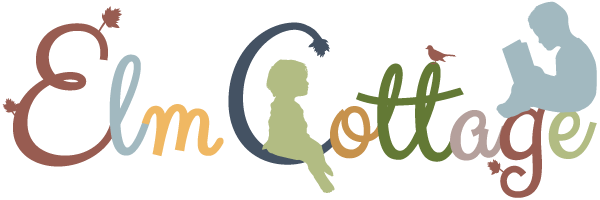Learning & Development
“The nursery provides a rich and vibrant learning environment in which children are very well nurtured and make excellent progress in their learning and development. Highly skilled staff have an exemplary understanding of individual children’s needs and build exciting learning opportunities around their interests to motivate and engage them in stimulating learning opportunities.”
Ofsted Crescent Park, Jan 2013
It is our duty as a childcare provider to implement the Early Years Foundation Stage. We use The Early Years Foundation Stage Framework to ensure that our setting provides maximum opportunity for every child in our care to achieve the five Every Child Matters outcomes of Staying Safe, Enjoying and Achieving, Being Healthy, Making a Positive Contribution and Achieving Economic Well Being. We aim to achieve this by: Implementing the EYFS four principled approach into our current practice because it builds the foundations for excellent learning and development and ensures effective practice. The Four Themed Principles are:
- A Unique Child – Recognising that every child is a competent learner from birth who can be resilient, capable, confident and self-assured. The commitments to this are development, inclusion, safety and health and well-being. This principle is closely linked to the children’s individual play, and guides practitioners in how to observe, and key behaviours to look for in the children’s play.
- Positive Relationships – How children learn to be strong and independent from a base of loving and secure relationships with parents/carers and/or key person. The commitments to this are respecting each other, working in partnership with parents, supporting learning and the role of the key person. This principle gives practitioners ideas for direct play with the children in group situations and in one to one activities.
- Enabling Environments – The environment plays a key role in supporting and extending children’s learning and development. The commitment to this is observation, assessment and planning, support for every child, the learning environment and the wider context including transitions, continuity and multi-agency working. This principle gives practitioners practical ideas for suitable provision in each Area of Learning.
- Learning and Development – Recognising that children develop and learn in different ways and at different rates and that all areas of learning and development are equally important and inter-connected. The Area’s of Learning are incorporated into this principle, and it is directly linked to individual learning and play. In each Area of Learning, there are Early Learning Goals from 40+ months.
In line with the EYFS statutory requirements we must provide opportunities and experiences for every child to achieve the Early Learning Goals. The Early Learning Goals are an integral part of the Area’s of Learning. We ensure that we meet the requirements by delivering well planned, purposeful play with a balance of adult led and child initiated indoor and outdoor activities that cover every area of learning. Areas of Learning There are seven Areas of Learning in the EYFS, which are divided into ‘Prime Area’s and ‘Specific Area’s’. Each Area of Learning is split into ‘Aspects’ and covers key behaviour from birth to 60 months. From 40+ months there are a series of Early Learning Goals in each area. Practitioners understand that problem solving is a key skill that children need support in developing across all Areas of Learning. The Prime Areas are: Personal, Social and Emotional Development There are three aspects in this area: Making Relationships, Self-Confidence and Self-Awareness, and Managing Feelings and Behaviour. Children in our care will always be provided with experiences and support that will help them to develop a positive sense of themselves and of others, social skills and a positive disposition to learn. We ensure support is always provided for children’s emotional well-being to help them know themselves and what they can do. We provide opportunities for children to: • Be independent, i.e. in dressing themselves, personal hygiene, setting the table for meals, eating for themselves. • Take part in daily group sessions involving listening and group discussion. • Engage in individual and group play involving sharing and turn taking. • Talk about their feelings, for example, what makes them feel happy or sad? • Take an active part in devising rules for acceptable behaviour in the room. These are presented in a book, which is kept with all the other children’s books, and of equal importance. • Learn good manners and politeness. • Experience relevant cultural and religious events e.g. Divali, Chinese New Year. • Build strong relationships with their key person and all other staff. Physical Development There are two aspects in this area. They are Moving and Handling, and Health and Self-Care. We encourage the physical development of babies and children by encouraging them to be active to improve their skills of coordination, control, manipulation and movement. We support babies/children to use all of their senses to learn about the world around them and to make connections between new information and what they already know. We also encourage development and understanding of the importance of physical activity and making healthy choices. Some of the ways that we support Physical Development are: • Providing activities that offer physical challenges. • Promoting healthy eating and giving children healthy snacks and drinks and talking about them with the children. • Encouraging children to take part in physical activities i.e. dancing, ring games, running games, bend and stretch etc. that also help promote spatial awareness. • Providing physical activities i.e. ball pools, throwing equipment, bikes, climbing frame, P.E., obstacle courses etc. • Encouraging babies/children to use fine motor skills and coordination i.e. stacking, drawing, threading, posting etc. • Helping children to understand how exercise, eating, sleeping etc. promote good health. • Providing for energetic play, i.e. building outside, sand play, dancing area etc. • Encouraging children to use a variety of equipment i.e. scissors, rolling pins, bats, balls etc. • Encouraging babies/children to take supervised risks.
Areas of Learning There are seven Areas of Learning in the EYFS, which are divided into ‘Prime Area’s and ‘Specific Area’s’. Each Area of Learning is split into ‘Aspects’ and covers key behaviour from birth to 60 months. From 40+ months there are a series of Early Learning Goals in each area. Practitioners understand that problem solving is a key skill that children need support in developing across all Areas of Learning. The Prime Areas are: Personal, Social and Emotional Development There are three aspects in this area: Making Relationships, Self-Confidence and Self-Awareness, and Managing Feelings and Behaviour. Children in our care will always be provided with experiences and support that will help them to develop a positive sense of themselves and of others, social skills and a positive disposition to learn. We ensure support is always provided for children’s emotional well-being to help them know themselves and what they can do. We provide opportunities for children to: • Be independent, i.e. in dressing themselves, personal hygiene, setting the table for meals, eating for themselves. • Take part in daily group sessions involving listening and group discussion. • Engage in individual and group play involving sharing and turn taking. • Talk about their feelings, for example, what makes them feel happy or sad? • Take an active part in devising rules for acceptable behaviour in the room. These are presented in a book, which is kept with all the other children’s books, and of equal importance. • Learn good manners and politeness. • Experience relevant cultural and religious events e.g. Divali, Chinese New Year. • Build strong relationships with their key person and all other staff. Physical Development There are two aspects in this area. They are Moving and Handling, and Health and Self-Care. We encourage the physical development of babies and children by encouraging them to be active to improve their skills of coordination, control, manipulation and movement. We support babies/children to use all of their senses to learn about the world around them and to make connections between new information and what they already know. We also encourage development and understanding of the importance of physical activity and making healthy choices. Some of the ways that we support Physical Development are: • Providing activities that offer physical challenges. • Promoting healthy eating and giving children healthy snacks and drinks and talking about them with the children. • Encouraging children to take part in physical activities i.e. dancing, ring games, running games, bend and stretch etc. that also help promote spatial awareness. • Providing physical activities i.e. ball pools, throwing equipment, bikes, climbing frame, P.E., obstacle courses etc. • Encouraging babies/children to use fine motor skills and coordination i.e. stacking, drawing, threading, posting etc. • Helping children to understand how exercise, eating, sleeping etc. promote good health. • Providing for energetic play, i.e. building outside, sand play, dancing area etc. • Encouraging children to use a variety of equipment i.e. scissors, rolling pins, bats, balls etc. • Encouraging babies/children to take supervised risks.
Communication and Language There are three aspects in this area. They are Listening and Attention, Understanding, and Speaking. Children’s learning and competence in communication is always supported and extended in our setting. All children will be encouraged when beginning to speak and listen by being given the opportunity and encouragement to use their skills in different situations and for a range of purposes. They will also be supported in developing the confidence and dispositions to do so. We provide opportunities for children to: • Participate daily in talking and listening group sessions. • Enjoy a wide range of fiction and non-fiction books, story times, rhyme times, action rhymes and song times. • Explore and enjoy musical instruments. • Communicate their feelings, thoughts and idea’s, and build up relationships with adults and each other. • Experiment with mark making implements such as pencils, crayons, paint etc. • Relax and have time in the ‘Communication Friendly Space’ where they can enjoy sharing and talking with friends. • Play with puppets, role play materials and story sacks.
The Specific Areas of Learning are:
Literacy There are two aspects to this area. They are Reading and Writing. All children will be encouraged when beginning to read and write, when they begin to show an interest in doing so. This means that practitioners will observe that the children’s actions demonstrate what level of literacy they are achieving according to the EYFS, and will plan a next step for each child to promote further development and learning in this area. They will also be supported in developing the confidence and dispositions to want to learn, develop and enjoy achievements. We provide opportunities to: • Enjoy a wide range of fiction and non-fiction books, story times, rhyme times, action rhymes and song times. • Have constant access to the Snug area (book corner) where they can enjoy looking at books alone or sharing and talking with friends about narratives. Books will sometimes be in different languages. • Play with puppets, role play materials and story sacks. • Experiment with mark making implements such as pencils, crayons, paint etc., and be offered opportunities to mark make with their fingers, or a brush in malleable materials like sand, gloop, flour etc. • Experience symbols in the environment that reflect a cultural spread i.e. name cards, Chinese symbols. • Have constant access to letters in a variety of print fonts, handwriting and 3D pieces.
Mathematics Mathematics has two aspects. They are Numbers and Shape, Space and Measure. Practitioners are knowledgeable when supporting children’s problem solving skills in this area. We support children in developing their understanding of problem solving and the aspects of this area in a broad range of contexts in which they can explore, enjoy, learn, practice and extend their skills and gain confidence in using them. We provide opportunities for children to: • Use resources such as bricks, unifix, stacking rings etc. to count, match, order and sequence. • Experiment with their skills through role play such as shop keepers, post office etc. • Problem solve by carers asking open ended questions during play, such as ‘What shapes do you think can fit into the box?’ or ‘How many triangles do you think you can you cut from a cake?’ • Experiment with shapes and patterns through puzzles, games and toys. • Enjoy a number of rhymes, number games and counting games during play and the daily routine. • Experience numbers around the environment i.e. number cards, time lines etc. • Use numbers and problem solving in everyday situations such as setting the table, and using open ended questions such as ‘How many chairs do we need?’ How many children are here?’ and counting during play. • Experiment with weight, mass and measure through play dough, baking and weighing activities. Understanding of the World This area has three aspects. They are People and Communities, The World, and Technology. We support children to develop the knowledge, skills and understanding that will help them to make sense of their environment and the wider world. We ensure children are offered plenty of opportunity to: • Use equipment and tools safely. • Encounter creatures, plants, people and objects in their natural environment and real life situations. • Undertake practical experiments and work with a range of materials, i.e. magnifying glasses, scales, torches, play dough, textures, creative activities etc. • Explore a range of ICT equipment, i.e. computer, cd story corner, programmable toys, camera’s etc. • Celebrate cultural events and have positive experiences to different cultures. • Explore their curiosity through play, experimenting with resources. • Experiment with malleable and natural materials i.e. gloop, jelly, dough, ice etc. • Take part in activities that encourage prediction, critical thinking, observation and decision making i.e. melting ice, floating and sinking, building, designing and making. • Become aware of the local environment through different focus’ e.g. ‘Transport’, ‘Living Things’. The children are encouraged to carry out simple observations such as ‘The things I see on the way to school.’ • Understand their own lives and others by looking at and talking about their families, where they live, how they have grown etc. • Meet people from the community such as a community nurse, policeman/woman, postman/woman, firefigher or dentist, who will come to the nursery. • Experience their community and local environment by going out for walks or visiting the local shops, residential care home, airport, bus stations, railway stations and go on trips using public transport. We have visited places such as China Town in Manchester, Rusholme, the Eureka Museum, local farms, Blackpool etc.
Expressive Arts and Design There are two aspects to this area. They are Exploring Media and Materials, and Being Imaginative. We encourage children’s creativity and critical thinking by supporting their exploration, curiosity and play using our provisions. We support Creative Development by: • Giving children opportunities to explore and share their thoughts, ideas and feelings during play. • Providing a good balance of dancing, music and movement activities. • Encouraging children to explore musical instruments and sound. • Providing creative activities i.e. paint, sand, water, chalks, natural objects, malleable materials, designing and making activities, holistic play etc. • Encouraging children to role play using our home corner and themed role play boxes (for example, the hairdressers, vets etc.), resource bags (for hats, bags etc.), story sacks and puppets. • Providing play experiences that encourage children to use all their five senses. • Allowing children to be creative using their own ideas and valuing their ideas.
Parent/Carer Involvement We encourage all parents/carers to be involved in our planning cycle by sharing their ideas and having an input into their child’s personalised learning by sharing their observations, interests and achievements they have noticed at home. Continuous
Provision As well as our planned activities we promote continuous provision of resources. This involves having areas and resources that are always readily available for children to play with. This in turn encourages children to make their own choices of what to play with and allows them to build and extend their skills at their pleasure. Continuous provision helps children to learn and experiment at their own pace. When children make their own choices they become confident and return activities in their own time.





Recent Comments